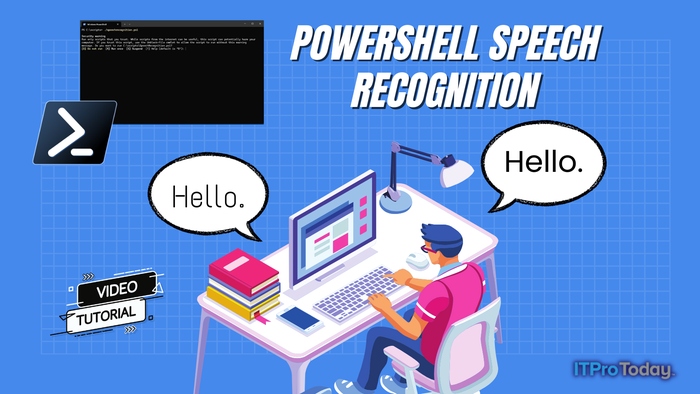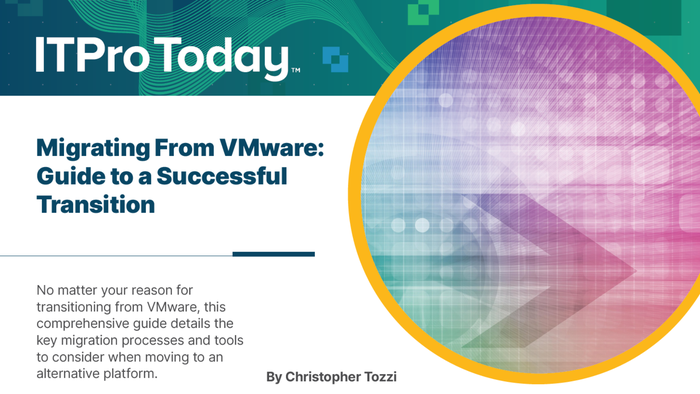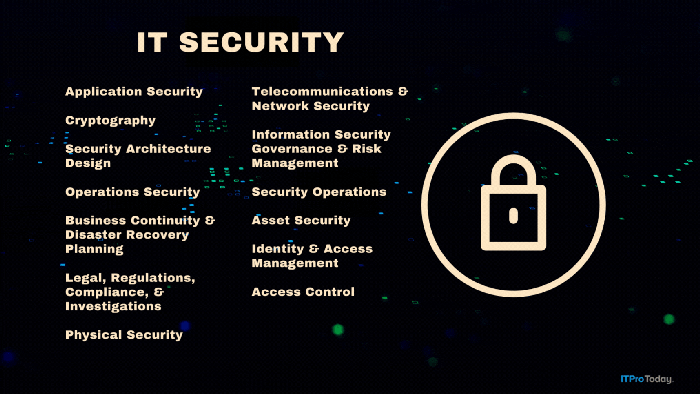Q&A with John Savill on Upcoming Hyper-V Master Class
John Savill is teaching an upcoming class on Hyper-V. John's sessions are always popular, but in this Q&A I delve deeper into why that is.
March 16, 2015

John Savill happens to be one of our most popular instructors here at WindowsITPro. He's constantly delivering fantastic sessions that give attendees the straight scoop on working with a product. On top of that, John's just a real nice guy. If you've not had the chance to meet him, make sure to plan to attend IT/Dev Connections 2015 to get some face time.
With so many classes under his belt, and the reviews so positive, I wanted to sit down with John to get his take on an upcoming event, John Savill's Hyper-V Master Class, learn a bit more about his methodology, figure out what makes his classes so popular, and hear about how applicable Hyper-V really is for organizations.
Here's a quick Q&A I had with John this week.
==========================
Me: What makes Hyper-V a valuable service for companies?
John: Pretty much every organization has adopted virtualization as the standard for OS deployments. Hyper-V is now in its fourth major version in Windows Server 2012 R2 and provides industry leading scalability and functionality in addition to forming the foundation of massive public cloud services such as Microsoft Azure. Hyper-V is a role within Windows Server which is hugely beneficial for organizations as it means it's managed and maintained in a consistent manner with the rest of the Windows infrastructure. It can be completely managed and automated using Power Shell and tools like System Center. It can be patched via Microsoft Update, WSUS and other path solutions. For IT administrators familiar with Windows the adoption of Hyper-V will be more intuitive and consistent than other hypervisors. Additionally even though Hyper-V is a type 1 hypervisor which runs on the server bare metal, it uses a Windows management partition for certain types of hardware interactions such as storage and networking which means existing hardware that is Windows certified can be used for Hyper-V rather than requiring special virtualization hardware and drivers. Hyper-V is a leader in the Gartner magic quadrant for virtualization showing its industry leading position. I’m a VMware Certified Professional in addition to being certified on the various Windows, Azure and Hyper-V technologies and while I would never say negative things about the ESXi, it’s a great hypervisor, the reality now is that so is Hyper-V and I don’t see environments where Hyper-V could not be used just as well as ESXi.
Me: Is Hyper-V an additional cost for Microsoft customers?
John: As I previously mentioned Hyper-V is just a role in Windows Server, there is no additional cost for Hyper-V. If you are already buying Windows Server because you want to run Windows Server in virtual machines then using Windows Server and Hyper-V on the bare metal to provide the hypervisor does not incur any additional cost. Then there is this “Microsoft Hyper-V Server” free download from Microsoft, what’s this? Imagine you don’t want to run Windows Server in VMs so you don’t need the virtual instance rights that come with the Standard and Datacenter versions of Windows Server. Maybe you want to run Windows client OS instances in a VDI environment or perhaps Linux instances. This is a great use case for Microsoft Hyper-V Server where you just need the hypervisor capabilities of Windows. In all cases, you are not paying extra for Hyper-V. What you should consider when planning is System Center. System Center provides the enterprise management for Hyper-V enabling templates, dynamic optimization, private cloud and more and there is a cost for System Center if it is not already owned. When you license System Center for virtual environments (whether Hyper-V or something) you can use System Center not just for the hypervisor management but also for management of the virtual environments.
Me: What value does it provide to business users versus IT staff?
John: The adoption of virtualization has enabled greater utilization of resources however often organizations still manage and provision like physical environments leading to long deployment times, complex management and difficulty tracking deployments leading to VM sprawl. I’ve heard of organizations where it can take 6 weeks from start to finish for a VM to be provisioned. Virtualization provides the foundation for the private cloud and it’s the private cloud that I think is the biggest benefit for the business users. Through Hyper-V, System Center and Windows Azure Pack a true private cloud can be delivered to the business enabling them to self-provision, enable show-back and charge-back, connect and manage their resources in a very efficient manner which will halt the flow of public cloud usage around the IT teams just because provisioning on-premises “takes too long”. I’m not saying the public cloud is not a great solution for some scenarios, but to use it just because things take too long on-premises is a mistake and IT teams can solve this through private cloud adoption and automation.
Me: Is Hyper-V a difficult product to understand?
John: If I say it’s too easy no one will attend the class but the reality is that is easy to get up and running with Hyper-V, it’s even part of Windows 8 however when you start getting into more advanced concepts such as networking and integration with System Center Virtual Machine Manager it’s really not intuitive and gets confusing quickly. It’s also partly because of its apparent ease of use that you can quickly find you are deploying solutions in a non-optimal way and with some knowledge you can design and deploy to provide a far more efficient and resilient solution.
Me: What approach does your class take that others don’t?
John: I really think it’s just the way I try and start from the basics and build on an ever growing foundation to help even complex technologies make sense by explaining how they work rather than just how to use them. I’m a huge believer in understanding how things work as I think if you know how something works you can work out all the different ways to use it. In this class I walk through all the key Hyper-V concepts enabling attendees to architect and manage a complete Hyper-V based environment by the end of the course. It also closely follows my Mastering Hyper-V 2012 R2 book enabling students to continue study if desired and both this course and my book utilizes a free Windows 8.1 application that provides videos, links and all the code that I use. I’ve been doing this a long time now and try to bring that experience to the attendees in a fun and interactive way. I have also been told I speak like the Geico gecko and apparently that helps ;-)
==========================
John's next class is the Hyper-V Master Class and it runs on Thursdays, April 16th, April 23rd, April 30th, and May 7th. This includes 12 Technical Sessions with Live Q&A.
You can read the details and sign-up here: John Savill's Hyper-V Master Class
About the Author
You May Also Like







.png?width=700&auto=webp&quality=80&disable=upscale)